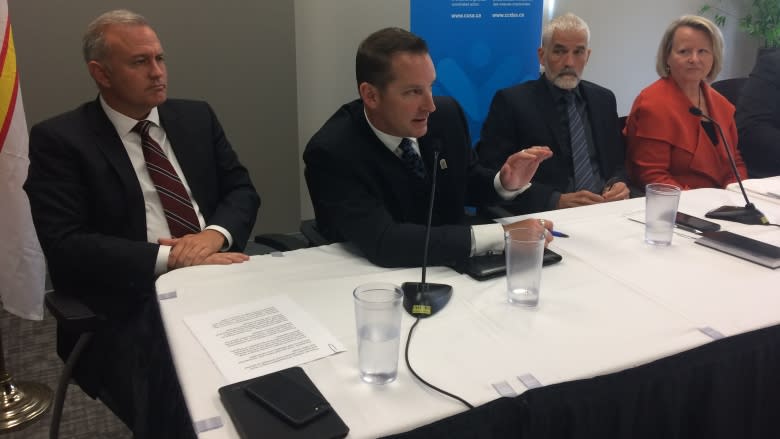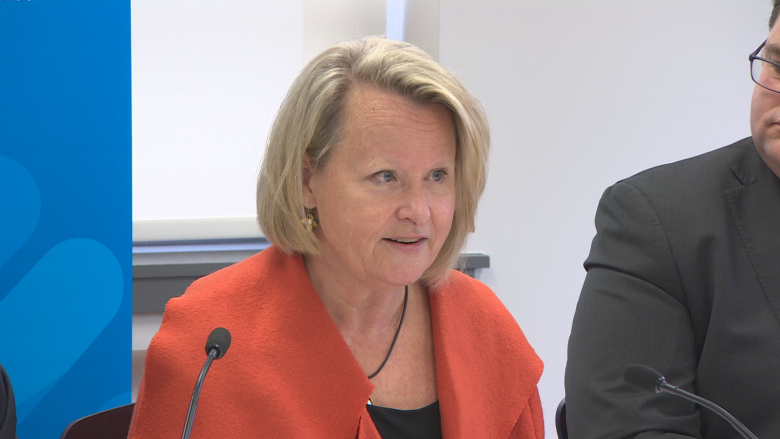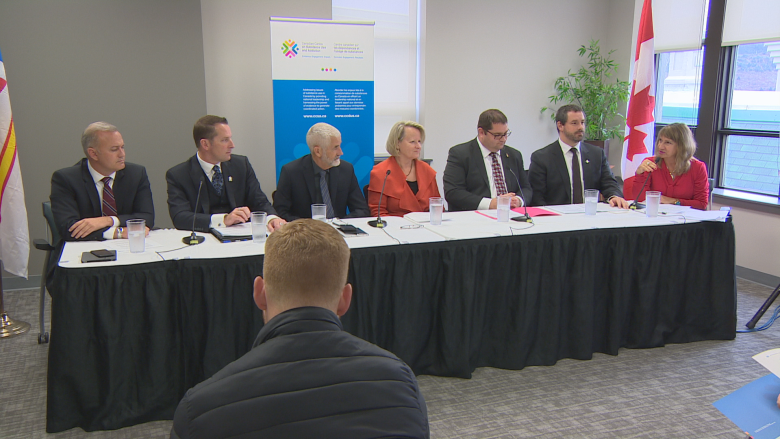These are the faces of addiction and recovery in Canada, report says
If addiction makes you think of a lone person in a dark alley injecting drugs into their arm, you're not alone. But a first-ever report on recovery in Canada aims to tell you how wrong that image is.
"Canadians don't see themselves reflected in that imagery, and so it allows them to say, 'that's not me, therefore I don't have a problem' and as a result of that the problem continues to grow," says report author Marshall Smith.
The Canadian Centre on Substance Use and Addiction (CCSA) presented the Life in Recovery from Addiction in Canada report Thursday morning at The Gathering Place in St. John's.
"This report gives us our first real window into this country's recovery community," said Ann Dowsett Johnston, who worked on the report. She said it's a "call for national action."
Its researchers, members of the National Recovery Advisory Committee, know first-hand what addiction and recovery looks like.
Addiction is a health issue, not a moral one
"I was a highly professional, highly educated woman with an enviable career who self-medicated with alcohol," said Dowsett Johnston.
The stigma around realizing you have a problem and getting help, along with immediate access to treatment are two of the big barriers to recovery noted by survey respondents.
"It's a health issue, not a moral issue," said Dowsett Johnston.
The committee said addiction needs to be treated like cancer or diabetes, with everyone from friends and family to employers and health care professionals offering empathy and support.
"If cancer comes back, we don't shame or berate the person for the recurrence. We treat them with love and compassion," said Stacey Petersen, a member of the advisory committee.
The report "celebrates recovery," according to Rita Notarandrea, chief executive officer at CCSA, as it shares the stories of 855 people from different walks of life across the country — all in recovery from addiction to drugs or alcohol, all finding their lives significantly improved.
"We should be hearing more about these stories of recovery, the hope that underlies all of this," said Notarandrea.
Can't afford to ignore the problem
For the authors, the report is about "transforming" the way addictions and recovery are looked at in Canada and the problems highlighted by gaps in the system exposed by the opioid crisis.
The evidence-based approach to the issue has support from provincial and federal levels of government.
The report found the connections between childhood trauma, mental health issues, addictions and homelessness were strong. And that treating addiction doesn't have to be expensive – with 91 per cent of survey respondents crediting 12-step mutual support groups like Alcoholics Anonymous with their recovery.
Connecting with people early, before losing their jobs, homes, and families, is one of the recommendations of the report's writers.
Marshall Smith, from B.C., knows the importance of that very well, having left a job with the provincial government 14 years ago when his alcoholism progressed.
"I ended up hanging up my suit and tie, leaving my office at the legislature, and found myself a new resident of the downtown east side of Vancouver where I lived as a homeless addict for five years on the streets of Vancouver until I found treatment, until I found recovery," he said.
"Today I have a great life."





